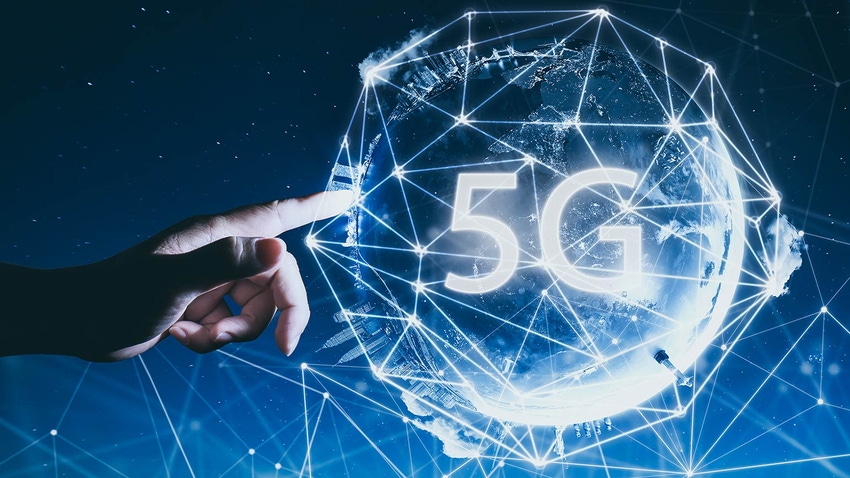5G wireless networks are coming. A telecom tax expert says companies eyeing the technology should be aware of the tax ramifications.
November 19, 2018

The next two or three years will likely go down as one of the most pivotal time periods in the history of the telecommunications industry, believes Tony Susak, general manager of Avalara Communications’ tax business. Having worked in the telecom industry for more than three decades, he sees 5G enabling incredible product offerings for both consumer and business applications across industries, while also helping to supercharge Internet of Things adoption.
And though there has been considerable speculation about the types of data-intensive applications 5G wireless networks will enable, one topic receiving less scrutiny is how much the technology will cost subscribers and how applications leveraging 5G will be taxed. Accenture estimates that telcos have invested a combined $275 billion on 5G-related technology, while McKinsey notes overall network costs for telcos could double. It is likely the cost for 5G service could be significant.
Another factor driving cost is the fact that the telecommunications sector is the most heavily-taxed service in the United States. “For any telecommunication-related service, you could easily have several associated taxes applied to it — local sales tax, state tax, federal tax, E911 tax for emergency services, utility user tax, gross receipts tax, business and occupation tax, and so forth,” Susak said. “Taken together, those taxes can, in many cases, [yield] a combined tax rate of 20 percent or more.”
This topic is important for companies planning on leveraging 5G wireless networks to create new business offerings or services. “When any company comes along and breaks what I call the ‘telecommunications bubble’ and begins offering a product offering with, say, the ability to track assets, gauge asset performance, enable phone calls, they should be aware of the potential tax ramifications,” Susak said.
Let’s say a company is developing a 5G-enabled service for autonomous cars monitoring traffic and road conditions and is considering using it to communicate with people in the car by voice. The managers at such a company could roll out such a product through a subscription. If this firm gets audited, the auditor might discover that the service provider has only been collecting sales tax for it. If the sum total of telecommunications-based taxes was 20 percent, and the company only collected 7 percent tax, they aren’t able to ask their customers for the difference after the fact. And if the firm increases the tax on its customer’s next billing cycle, it can expect to get irate calls from customers asking why their bills increased significantly. “The tax matter could be the difference between a successful and a non-successful product launch,” Susak noted.
Telecommunications taxes could apply to 5G-based services across disciplines, whether it is in health care, manufacturing, smart cities and smart buildings, agriculture or other fields.
[IoT World is the event that takes IIoT from inspiration to implementation, supercharging business and operations. Get your ticket now.]
As for the question of how to know if telecommunication taxes apply to a specific 5G-enabled product or service, the answer is, unfortunately, the consultant’s classic stock answer: “It depends.”
The fact of the matter is, there is not even a single agreed-upon definition for telecommunications. “The FCC has one definition of the term. In addition, there are 50 some public utility commissions with their definition and then you have state department of revenues with their definition,” Susak said.
Complicating matters is the fact that tax guidance does not keep pace with changing technology.
In addition, some cities such as Los Angeles, Chicago and New York have especially complex telecommunication taxes.
In any case, it is often difficult to determine how a new product or service that enters the telecommunications bubble might be taxed. “I saw this firsthand while working on GM’s OnStar product line from 2006 to 2012. It wasn’t clear in the beginning whether OnStar was a telecommunications service or an information service,” Susak recalled. A decade ago, telematics was new. “We could diagnose your car, check your tire pressure and engine lights and remotely stop your car. We could help you recover it if it was stolen,” he said. “It was an unprecedented service — similar to Voice over IP and streaming video, which also raised telecom tax questions when they debuted.”
The golden rule for companies potentially entering into the telecommunications space, no matter the industry, is that they need to become educated on the complexities of telecom taxes. There are often no definitive answers because technology moves incredibly fast and tax laws do not. There will be gray areas where tough decisions will have to be made that can have enormous bottom line impact.
So how does a company planning to leverage 5G wireless networks best prepare for potential telecom taxation? Susak shared the following list of considerations:
Understand what types of products currently require telecommunications tax. How do you make that determination?
If yours does require a telecommunications tax, what steps do you need to take before a product launch?
It��’s expensive to fight tax authorities. If you lose in one state, it could have a domino effect for compliance.
To help ensure everyone is taxing gray areas in a similar way, form a coalition with like companies.
Be aware of marketing ramifications – if you describe a product or service as something that requires telecommunications tax it will likely then be taxable that way.
Note your supply chain. How is the product or service delivered? Is it being resold? If so, with which entity does the tax liability lie?
When in doubt, always get advice from a large accounting firm in complex cases.
Ensure that your financial systems are prepared to handle the nuances of telecom taxation.
The bottom line is that 5G, like many groundbreaking technologies, is moving at a substantially faster clip than tax and regulatory bodies. “They eventually will catch up, but until then compliance will remain incredibly complex,” Susak said. “Understanding potential telecom tax impacts, and preparing for calculation and filing requirements, are critical to a successful new product launch.”
About the Author(s)
You May Also Like
.png?width=700&auto=webp&quality=80&disable=upscale)
.png?width=700&auto=webp&quality=80&disable=upscale)

.png?width=300&auto=webp&quality=80&disable=upscale)
.png?width=300&auto=webp&quality=80&disable=upscale)
.png?width=300&auto=webp&quality=80&disable=upscale)
